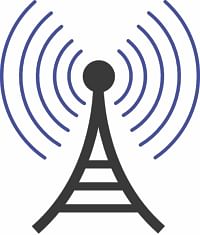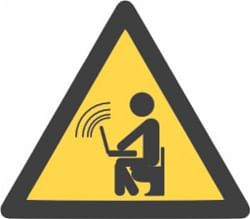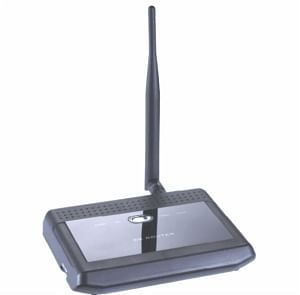| Home - Back Issues - The Team - Contact Us |
 |
| Volume 11 |Issue 21| May 25, 2012 | |
|
|
Sci-Tech Rise of the Wireless Era The WiFi is a new phase of wireless networking. In Bangladesh however, only a handful of operators are offering this service. Sharmin Ahmed
At home, Saima and her brother Nadeem have to take turns to use the internet even if they have separate Personal Computers (PC). This is because their modem can be connected to one PC at a time. As a result, Nadeem and Saima often quarrel about who should use the internet first. This problem could be easily solved by switching to wireless connections or getting two separate portable wireless modems. The modems, along with their set-up costs, are quite costly. However, with a WiFi connection, you don't need two modems. All they need is the wireless WiFi modem, which transfers data via an antenna, and a password that they both can use to login to the internet at the same time. Mashrur Hassan Mim, Product manager of Ollo, a provider of WiFi connection in Bangladesh explains the technical aspect: "The WiFi is a technology that allows an electronic device to exchange data via radio waves, hence it does not require wires to connect to a computer network and it allows high-speed internet connectivity. But to use the service one must be within the radius of one of the operator base stations." WiFi connections and services are usually popular in offices and organisations where it is necessary to have a whole network of PCs logged into the internet simultaneously. Nazmul Haque, owner of a local software company in Banani, says, "That is the magic of WiFi connection. Previously, we had to hire an ICT person just to set up a network so that all the PCs are connected to the main PC which provides the internet connection. One problem with this type of network is that the speed of data flow decreases with the number of PCs connecting to the internet." WiFi does not require any such setup and it doesn't slow down as long as one is within the range of the WiFi hotspot. Providing secure wireless solutions support the growth and release of a mobile informal wireless network for use. For regular mobile internet users, the speed varies and can often be very slow; but Wifi allows one to access data at a consistent and faster pace. Moreover, there are mobile phones that have smart phone applications that allow WiFi internet connectivity, which means one doesn't need to subscribe to an internet connection with one's mobile operator, and can access the internet for free – as long as one is within the parameter of the WiFi hotspot. Operators like Qubee and Banglalion provide WiMAX services which stands for Worldwide Inter-operability for Microwave Access – a form of Wifi service. Syed Mohammad Abu Hares, who works at the Qubee internet solutions department, says, "To use the service you must live within the radius of one of the operator's base stations and there are various packages offering different sizes of service packages." These operators provide packages with different bandwidths, such as Tower Modem having a built-in WiFi router, priced at Tk 5,000 taka, and Postpaid connections at Tk 1,000 per month."
Syed Rakib Al-Hassan, who is a software engineer, at a local software company, says, “The WiFi services that we get here in Bangladesh is good, but area coverage needs to be increased and prices of the packages need to be reduced.” Consumers agree that WiFi is expensive for everyday use and not all areas offer good WiFi services. A lot of places like malls and eateries where young people hangout offer WiFi services because they feel it attracts young people to their establishments. Coffee World even offers a PC for those who cannot use their cell phones, laptop or net books to use the WiFi. There are three main providers of WiFi connectivity in the country: Ollo, Banglalion and Qubee. Mobile operators like Airtel, Grameen Phone and Citycell have their own wireless connections, but they do not as yet offer it to the public. Grameen phone's Operamini package is not a substitute to the WiFi, but it has many facilities that Wifi connections provide. The inception of internet services in Bangladesh began with broadband connection, which was quite costly and slow. Then came the portable yet powerful Zoom-ultra, a bit pricy but with reasonable speed; other connectors like Qubee, Banglaion and Ollo, soon followed suit, often offering better data speed at affordable prices. The next big step was the provision of WiFi services, which provides high speed connectivity like no other. Mahfuzul Alam, Assistant Director, systems and services division of BTRC, says, "In most of the first world countries, WiFi services are not as popular as they are here. This is obviously because they use Fibre Optic internet connectivity, which is much faster. However, since Bangladesh as of yet has not yet taken up the Fibre optic line, WiFi is the best option for us till date." For those who can afford it, WiFi is an attractive service, allowing uninterrupted and good internet speed. It also allows multiple users to log in at the same time, and are, thus, perfect for offices, institutions and modern day families. Finally, Saima and Nadeem can stop fighting and sit together to decide on a suitable WiFi package for their family. Copyright
(R) thedailystar.net 2012 |
||||||||||||



